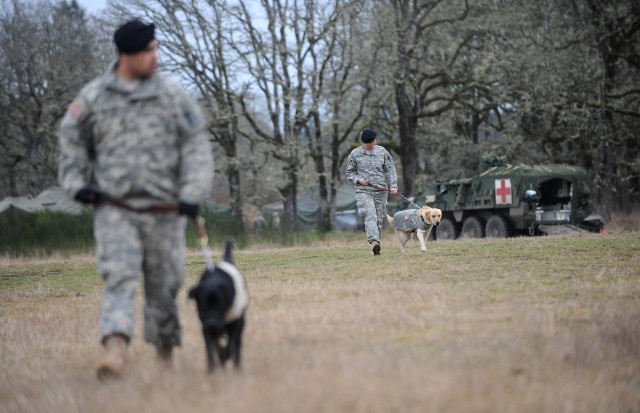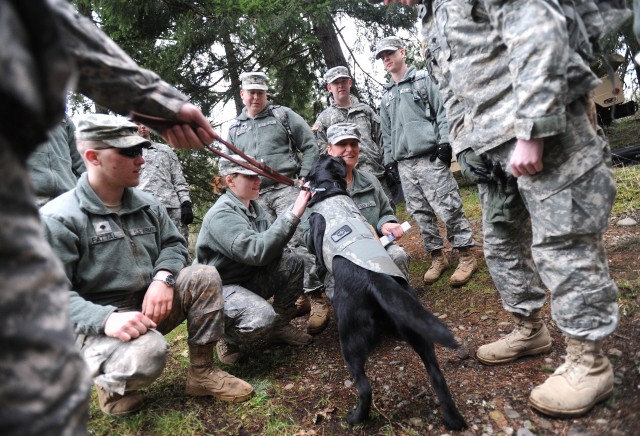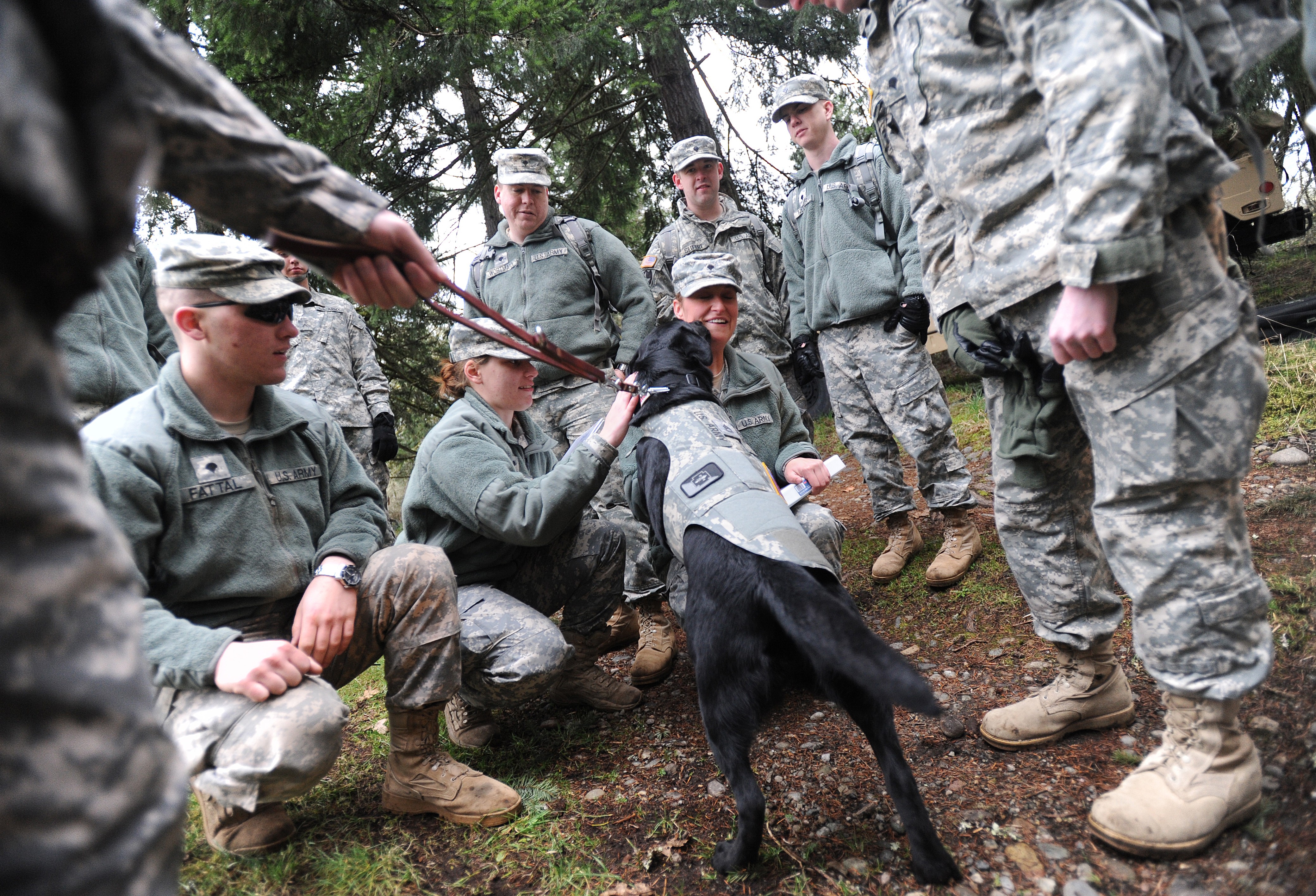When 98th Medical Combat Stress Control Detachment deploys later this month, the unit will be arming itself with more than ammunition and standard Army-issued equipment. The team of about 50 Soldiers and officers will fight a less visible enemy - stress - using therapy dogs as its weapons.
Butch and Zack were selected to deploy to Iraq after intensive training by America's VetDogs, a nonprofit organization that raises and donates dogs to military units and veterans with needs. The dogs were handed over to 98th Med. Det. last week, and will continue training alongside their military partners in preparation for deployment.
Commander of 98th Med. Det. and psychiatric nurse practitioner, Lt. Col. John Gourley, said the unit spent one week training with four dogs before selecting Butch and Zack because of their temperaments.
"Butch and Zack are more outgoing and they're more engaging with people," Gourley said. "What we need the dogs to be able to do is break the ice with the Soldiers."
"Breaking the ice" can be a critical first step in getting a Soldier help, especially downrange where the stakes are high and the risks real. The detachment is deploying with a dozen providers, including psychiatrists, psychologists, psychiatric nurse practitioners, social workers and occupational therapists who will split into multiple small units to provide treatment across theater. Their main challenge will be getting Soldiers into their clinics for care. That's where the dogs will help the most.
"Our goal is to try to help the Soldiers cope with the stressors they're dealing with to be able to stay on mission, or if they're having issues, to certainly help get them to where we can get them more help in a rear medical area," Gourley said.
Butch, a 23-month-old black Labrador retriever, proved her value with each Soldier she encountered Feb. 11, as she made her way around a JBLM training site. Navigating the grounds with her new handler, Spc. Jon Miles, the pair was received with open arms at every stop.
"There's really no real rhyme or exact reason why, but it works," Miles said of Soldiers' affection for Butch as they flocked to pet her.
Miles remembered a previous deployment without the luxury of therapy dogs. Instead, he and fellow Soldiers adopted and cared for several local dogs in the area.
"Dogs generally have a calming effect on people, so if a Soldier's having a hard time because they're homesick or stressed out at work, we've got a great opportunity to just decompress," he said. "It's an opening for them to relax and speak with us so we can see if they need help."
For Sgt. Liz Wright, a mechanic with 3rd Brigade, 2nd Infantry Division, seeing Butch broke up the monotony of a long day working outside in the cold.
"We had been here all day working hard, putting up tents, then we saw them," Wright said. "We stopped what we were doing and went over to pet her. It took our minds off what we were doing out in the cold."
Specialist Francis Fattal, a medic with 3rd Bde., 2nd Inf. Div., had contact with military police working dogs during his first deployment and could see how having therapy dogs would benefit troops downrange.
"The working dogs were a big morale boost every time we saw them," Fattal said. "These ones I can sit and play with, so it's even better. They're happy and just want to be loved on. It's enough to lift anybody's mood."
Gourley expects other troops will have similar reactions. Not everyone who comes in contact with Butch or Zack will be referred to a clinic or require help of any kind. Simply interacting with the dogs can be enough to enhance morale.
"Often times a big tough guy (who) doesn't want to talk to a mental health person will feel comfortable getting down and talking while petting the dog," Gourley said. "It doesn't necessarily mean they will go to a clinic for help. Just interfacing with a dog is good and can help them."
Captain Andrea Lohmann, an occupational therapist with 98th Med. Det., said the unit is fortunate to be deploying with Butch and Zack, and has the generosity of the American people to thank.
"Essentially, the Americans are the ones that we are grateful for," Lohmann said. "Their donations made the dogs possible, and (the dogs) are absolutely amazing. We are so lucky to have them."
Laura M. Levering: laura.may.levering@us.army.mil




Social Sharing